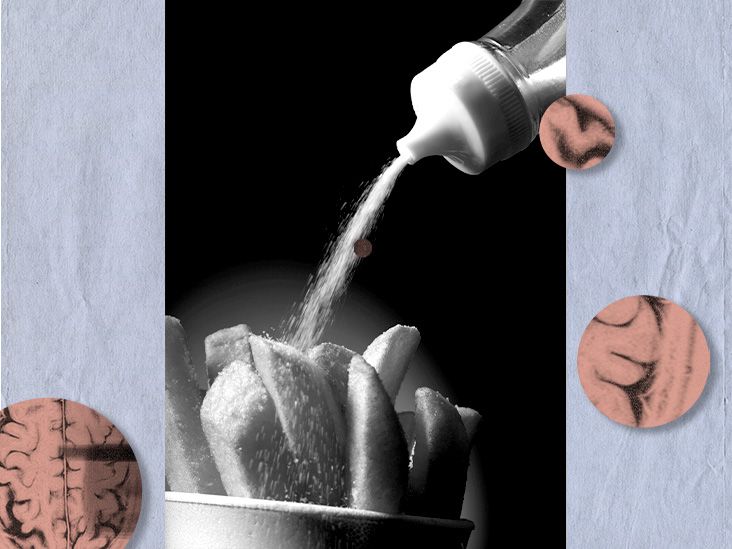Masturbation is when an individual stimulates their genitals for sexual pleasure, which may or may not lead to orgasm. There are many myths regarding the side effects of masturbation, but the majority are false.

Masturbation is common among people of all ages and plays a role in a healthy sex life.
Research has found that around 95% of males and 78% of females under 30 years masturbate. Although masturbation prevalence declines with age, 57% of males and 41% of females ages 70 to 79 years engage in masturbation.
Individuals masturbate for many reasons, including pleasure, enjoyment, fun, and tension release. Some people masturbate alone, while others masturbate with one or multiple partners.
This article looks at the potential side effects of masturbation and identifies some of the health benefits.
There are many myths about masturbation. While health experts have debunked many of these times, these misconceptions often resurface.
Most claims about masturbation do not have scientific backing. There is no research evidence to show that masturbation causes any of the adverse effects some people may suggest. The activity does not cause:
- blindness
- hairy palms
- impotence later in life
- erectile dysfunction
- penis shrinkage
- penis curvature
- low sperm count
- infertility
- mental illness
- physical weakness
Some couples worry that their relationship must be unsatisfying if either one of them masturbates. This is also often untrue.
Most people continue to masturbate either alone or together when they are in a relationship or married, while many find it an enjoyable part of their relationship.
Masturbation is harmless. Some people may experience chafing or tender skin if they are too rough, but this is typically temporary.
If those with a penis frequently masturbate within a short space of time, they may experience a slight swelling of the penis called an edema. This swelling usually resolves without treatment.
Other potential side effects include:
Guilt
Some people who worry that masturbation conflicts with their religious, spiritual, or cultural beliefs may experience feelings of guilt. However, masturbation is not immoral or wrong, and self-pleasure is not shameful.
Discussing feelings of guilt with a friend, healthcare professional, or therapist who specializes in sexual health might help individuals move past feelings of guilt or shame relating to masturbation.
Decreased sexual sensitivity
If individuals with penises have an aggressive masturbation technique that involves gripping their penis too tightly, they can experience decreased sensation. A person can resolve this over time with a change of technique.
Enhanced stimulation, such as using a vibrator, may increase arousal and overall sexual function in people of all sexes.
In a 2024 study, women ages 18 to 80 years who used a vibrator for 3 months experienced improved sexual function and pelvic floor function. They also had lower rates of depression than at the start of the study.
Prostate cancer
It is uncertain whether masturbation has an effect on the risk of prostate cancer. Researchers need to conduct more studies before they can reach a conclusion.
A 2023 study examined the connection between ejaculation frequency during different stages of life and prostate cancer.
The study involved 456 individuals with prostate cancer and 427 individuals without the disease. The results showed that men who ejaculated less frequently a year before the study had a higher risk of prostate cancer. Men with urinary symptoms and low ejaculation frequency had the highest risk.
These findings suggest that a lower ejaculation frequency could have links to a higher risk of prostate cancer. However, more research into this relationship is necessary.
Disrupting daily life
In rare cases, some individuals may masturbate so frequently that it negatively affects their lives, such as:
- causing them to miss work, school, or important social events
- interrupting their functioning
- affecting their responsibilities and relationships
- serving as an escape from relationship issues or a substitute for real-life experiences
Someone who thinks they might be adversely affected by their masturbation needs to speak with a healthcare professional.
A doctor or counselor may suggest talk therapy to determine ways to manage their sexual behavior.
Consulting a sex therapist may also help with coping strategies for excessive masturbation. To locate a local sex therapist, a person can visit the American Association of Sexuality Educators, Counselors, and Therapists (AASECT).
Read about some ways to stop masturbating.
Masturbation has many physical and mental health benefits. It may help with:
- reducing stress
- releasing tension
- enhancing sleep quality
- boosting concentration
- elevating mood
- relieving menstrual cramps
- easing pain
- improving sex
- improving self-esteem and body image
- treating sexual problems
Health experts have also identified masturbation as a strategy to improve sexual health by promoting intimacy, exploring self-pleasure, desires, and needs, reducing unwanted pregnancies, and preventing sexually transmitted infections (STIs) and HIV transmission.
Individuals who choose to abstain from sex or who do not currently have a sexual partner may masturbate as a sexual outlet.
Masturbation also has sexual health benefits, specifically for older women, such as less vaginal dryness and decreased pain during sex.
Some people may feel embarrassed, guilty, or ashamed about masturbating, but it is very common and can be part of a healthy sex life.
Masturbation will not lead to blindness or cause physical and mental health problems. In fact, masturbation has more health benefits than adverse effects.
Masturbation may become an issue if it interferes with daily life and relationships. If that occurs, a person can speak with a doctor or sexual healthcare professional.


